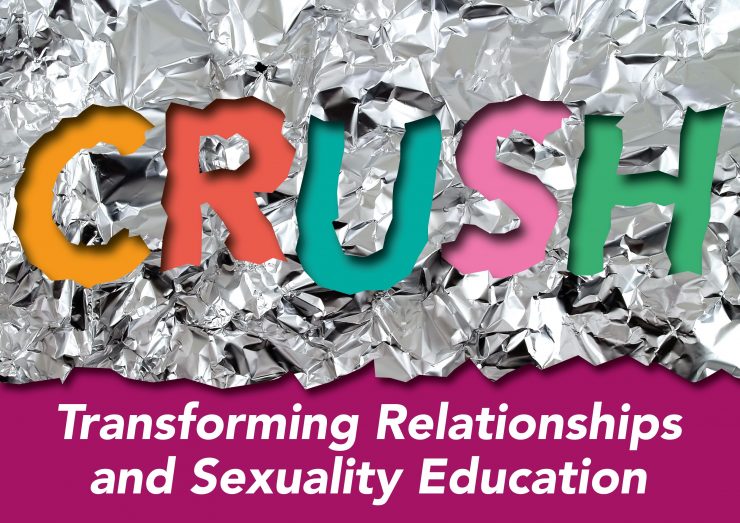By EJ Renold, Ester McGeeney and Max Ashton
Relationships and sexuality education (RSE) begins long before children start school.
As soon as children enter the social world they will be encountering complex and often contradictory messages about sex, gender, relationships and sexuality that shape their day-to-day lives and imagined futures. However, while schools have the potential to create safe and empowering environments that can respond to children and young people’s own learning and experience on a range of RSE issues, they have “struggled over a long period of time to bridge the gap between official sexuality education and diverse young people’s lived experiences” (Kathleen Quinlivan 2018).
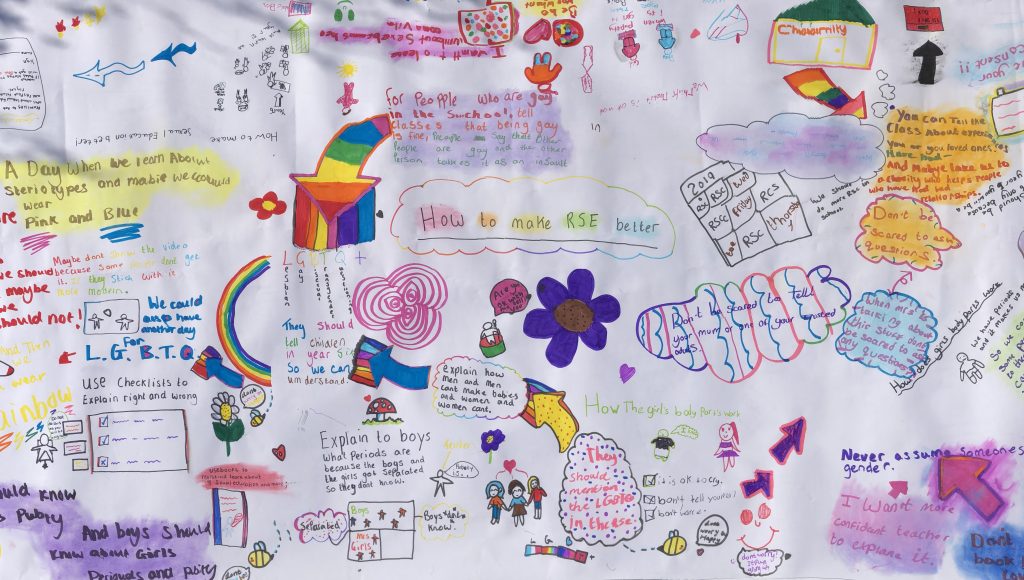
RSE in Wales is changing
Contemporary RSE research/ers encourage us to think again how sexualities and relationships are ‘taught, learned, witnessed, affectively charged, embodied, enacted, muted, and resisted by students and educators’ (Sara McClelland and Michelle Fine 2017, p. 212). Yet, inventive ideas for doing RSE in schools differently are too often disconnected from the political ecology of local, regional and/or national contexts, making it difficult for a new praxis to take root and flourish.
Over the last five years, EJ has had the rare privilege to build upon some incredible international scholarship and practice in RSE and has made some headway in shaping the new statutory Relationships and Sexuality Education in Wales, as an academic, activist, and Welsh Government advisor. In March 2017, EJ was invited by the Minister for Education to chair a panel of experts examining the current and future status and development of the Sex and Relationships Education curriculum in Wales. Only a short briefing was expected (Renold and McGeeney 2017a), but we produced a much longer 160 page report (Renold and McGeeney 2017b). This process laid the foundations for a radical re-routing of RSE in Wales. From 2020 this year RSE is now underpinned by the principles of rights, equity, creativity, inclusivity, empowerment, protection and co-production, and covers the core themes of relationships; sex, gender and sexuality; bodies and body image, sexual health and well-being; violence, safety and support; and rights and equity (Welsh Government 2020). However, while the expert panel’s recommendations have been slow to materialise, the stops and starts of how RSE is unfolding has opened up opportunities for EJ and Ester to develop their own professional learning programme (PLP) for teachers.

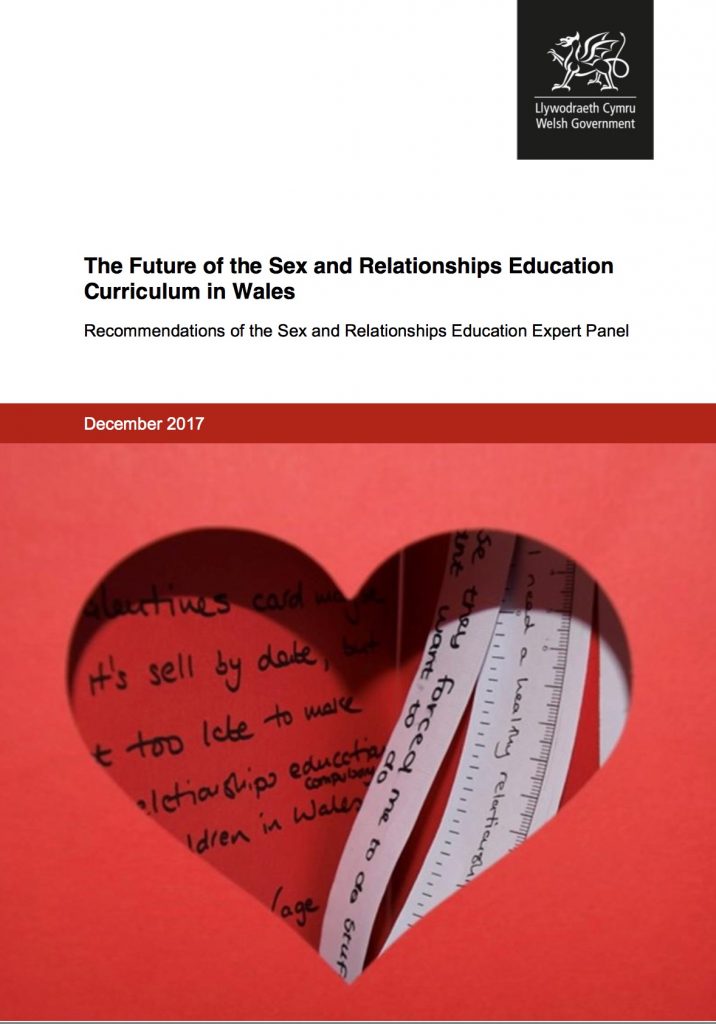
Making professional learning matter
In 2018 EJ and Ester were invited to design and deliver a series of Relationships and Sexuality Education (RSE) professional learning workshops to support in-service teachers to prepare for the new RSE statutory curriculum and guidance in Wales. Building upon the critical, creative and participatory methods developed in the AGENDA toolkit (www.agendaonline.co.uk) the programme invites teachers to participate in a range of pedagogic activities that they can then build on creatively and experiment with, first in the workshops themselves, then back in their own school, and then again in further workshops. Presently, the programme has directly engaged with 27 teachers, across 23 primary, secondary and special schools.

What is a creative audit?
Informed by the AGENDA stARTer activities, which many GEA members may be familiar with from the annual GEA conferences in 2018 and 2019, the creative audit is a tool that enables teachers to begin co-producing the RSE curriculum with children and young people. We have used the term ‘audit’ intentionally. We have flipped the neoliberal measuring practices of a school’s ‘audit culture’ by connecting to its Latin roots; an audit can open up the ‘listening’ process (aural) to a process of perception (‘au’ – to perceive). In doing so, it scaffolds accountability on the journey of coming to know differently through ‘creativity’ – that is, as a way of imagining and doing RSE differently.
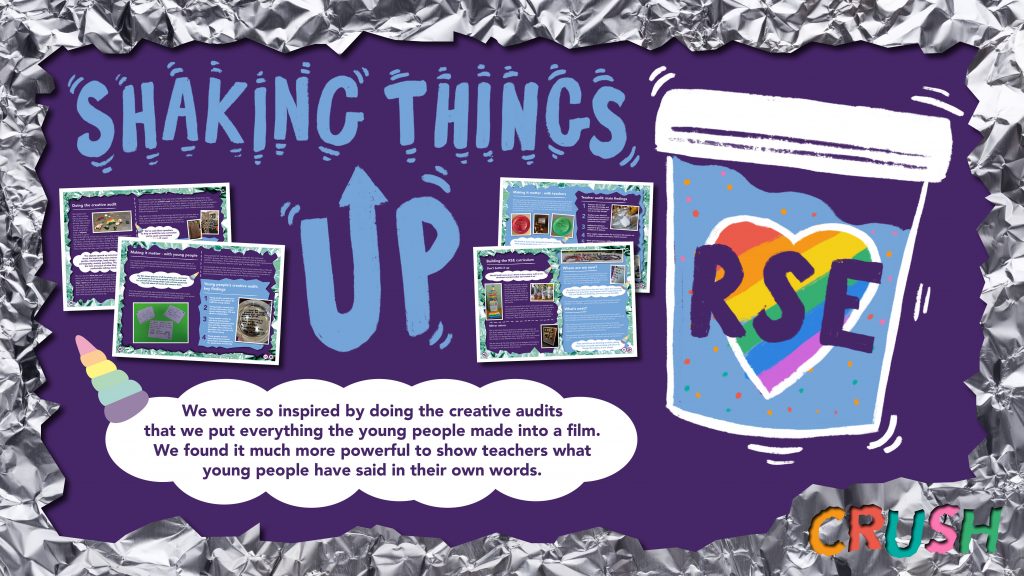

Watch the film, “Making Space: Transforming Relationships and Sexuality Education in Wales” to see a creative audit in action.
Launching CRUSH!
To share the praxis and potential of our new RSE professional learning programme, this spring, we created and published ‘CRUSH: Transforming Relationships and Sexuality Education’ (Renold, McGeeney and Ashton 2020). Hosted on the AGENDA online website, this free to download bi-lingual (Welsh-English) 90 page booklet shares a range of new resources that have been developed for the programme. It includes the research CRUSH-cards and a concept glossary, as well as a series of five illustrated school case studies which show how teachers are starting to reimagine what RSE can be and become with and for children and young people.
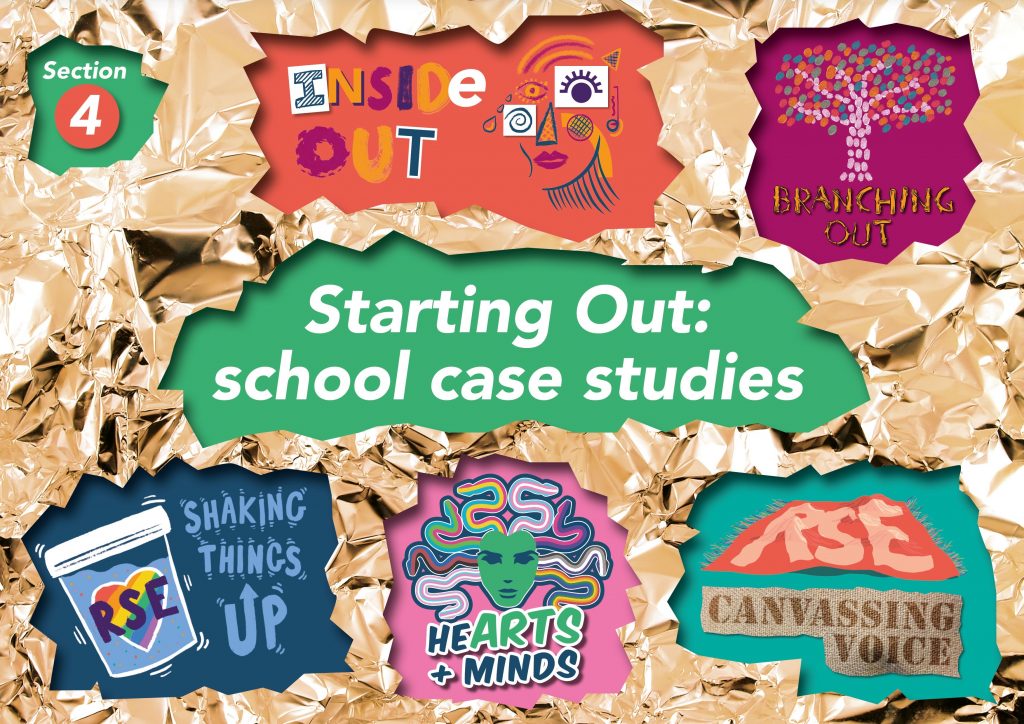
Why CRUSH?
At the heart of the resource, is the sharing the different ways in which creative pedagogy can enable a wide range of feelings, expression and discussion to surface so that ideas can take-off and new connections can be made. It often involves learning to unlearn what we think we know and making space to be curious about what matters, to whom and how. However, it isn’t a matter of anything goes. The pedagogy that informs our PLP is critical as well as creative. It keeps a check on power relations and social norms and works to understand and transform how these power relations, norms and inequalities play out in harmful and violence ways. So it’s an ethical and political praxis that harnesses the multiple meanings of CRUSH to get at this complexity: CRUSH as feeling, as force, and as mash-up, or fold.
Crush as FEELING attunes to the diversity, unpredictability and intensity of emotions the ebb and flow throughout all RSE learning and experience.
Crush as FORCE is about developing an affirmative praxis for addressing injustice, inequity and violence, and working with the forces that make change and empowerment possible
Crush as FOLD is about recognising the messiness of experience, and the potential of RSE as a trans-disciplinary field, to explore how categories and concepts (like identity, consent, body image etc) entangle and fold into one another.
Make some noise
One of the early 14th century definitions of crush comes from the Old French, croissir, which means to crack or brake and make some noise! CRUSH is a resource that not only cracks open a new unfolding RSE, but turns up the volume on youth voice through an empirical attunement of ‘what matters’ to young people on RSE issues. It also unashamedly speaks out about the need for professional learning and critical inquiry as RSE both expands and becomes statutory. Like AGENDA, it’s a resource that will always be evolving by responding and becoming responsible with all that we are learning from pupils, parents, teachers and communities. So stay tuned for more CRUSH-stories about how RSE is transforming in Wales. It’s been a bumpy ride, but we continue to CRUSH and teachers are beginning to re-imagine what RSE can become. We leave the final word to one of the teacher’s from the PLP who reflects upon her RSE journey:
“Something that I’ve noticed … is that I’m seeing RSE everywhere! and I’ve learnt that the kids are gonna love it, and it absolutely needs to happen, week in, week out, not just in a block pull down week. It needs to be in history, it needs to be in science, it needs to be in geography. It needs to be everywhere! and I think that is what I need to figure out! … I took the creative audit findings to the staff and it was SO useful …. to convey to teachers, they don’t need to think of it as RSE, they need to think of it as everything else. And yeah they (teachers) are overwhelmed with changes and uncertainty, but I do think they’re open to a new way forward now. RSE is just around us all the time and it really needs to be … it needs to be … we need to be secure in that before we do anything else”
(Primary School Teacher)”
To view and download the CRUSH resource, visit agendaonline.co.uk/crush and follow us on twitter @CRUSH_RSE.

